Future Tense | Verbal Ability & Reading Comprehension (VARC) - CAT PDF Download
Introduction
The future tense in English refers to the verb forms used to express actions, events, or states that will take place after the current moment. It is crucial for communicating about what will happen, is going to happen, or is expected to happen in the future. Understanding the different types of future tenses is essential for clear and effective communication, especially in both written and spoken English.
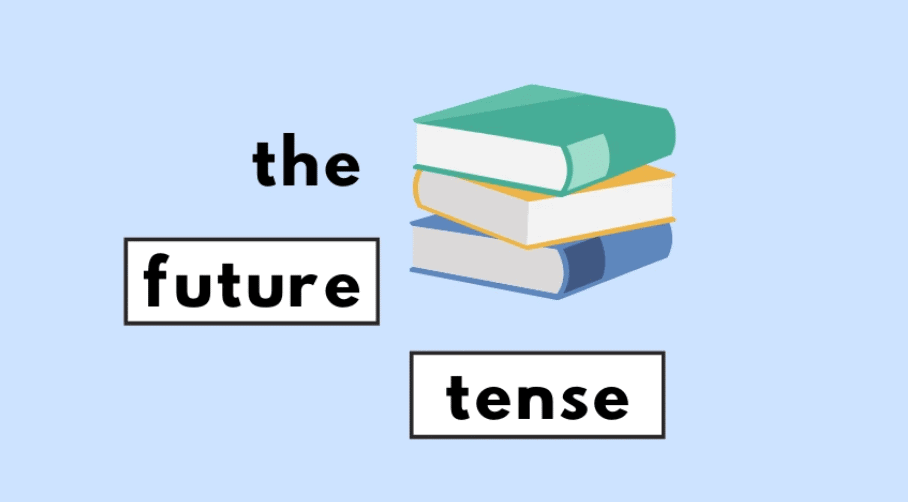
Example:
- I will finish my homework tomorrow.
- Let’s eat, I’ll pay for the food.
- I’ll help you with the chores.
- He will give you a lift.
In these examples, the future tense is used to indicate an action that is expected to occur in the future.
Types of Future Tense
The future tense has four primary types, each used to convey different aspects of future actions:
- Simple Future Tense
- Future Continuous Tense
- Future Perfect Tense
- Future Perfect Continuous Tense

Let's explore each type of future tense in detail.
1. Simple Future Tense
The Simple Future Tense is used to express actions that will occur at some point in the future. It is often used to express intentions, predictions, or promises.
Structure:
Subject + will + base form of the verb + rest of the sentence
Examples:
- John will travel to New York next month.
- I will call you tomorrow.
- They will complete the project by next week.
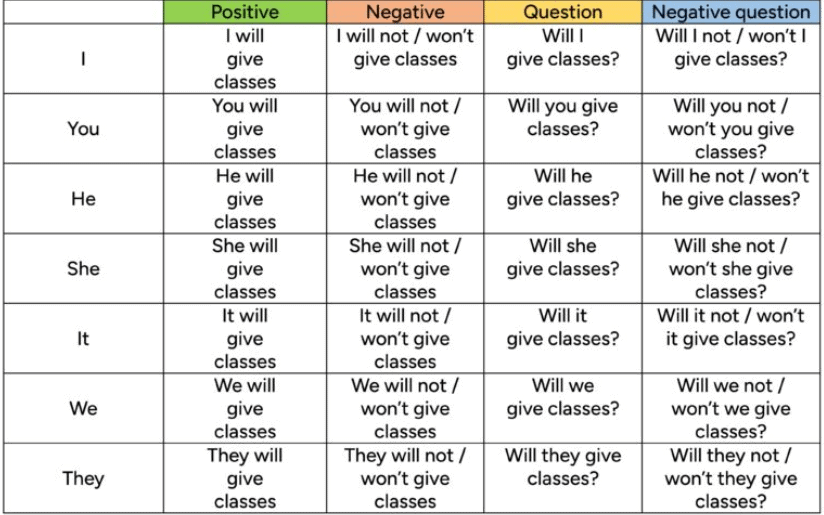
2. Future Continuous Tense
The Future Continuous Tense is used to describe actions that will be ongoing at a specific moment in the future. It is often used to highlight the duration or continuity of an action.
Structure:
Subject + will be + present participle (base form of verb + ing) + rest of the sentence
Examples:
- Sarah will be working on the project all day tomorrow.
- I will be studying at 8 PM.
- They will be attending the seminar next week.
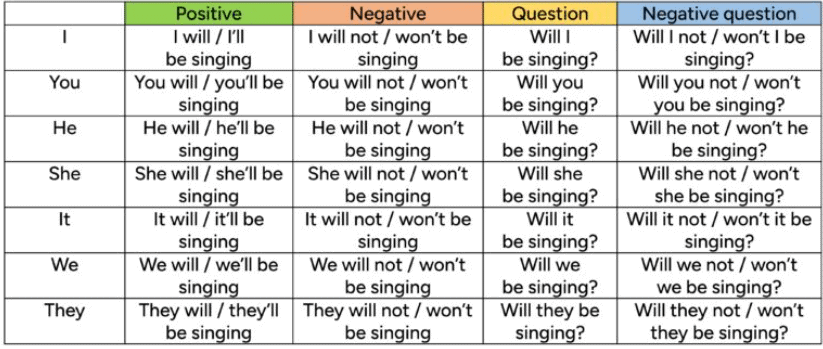
3. Future Perfect Tense
The Future Perfect Tense is used to describe an action that will be completed before a certain point in the future. It emphasizes the completion of the action.
Structure:
Subject + will have + past participle of the verb + rest of the sentence
Examples:
- By the time you arrive, they will have finished the meeting.
- She will have completed her assignment by the end of the day.
- We will have left by the time you get here.
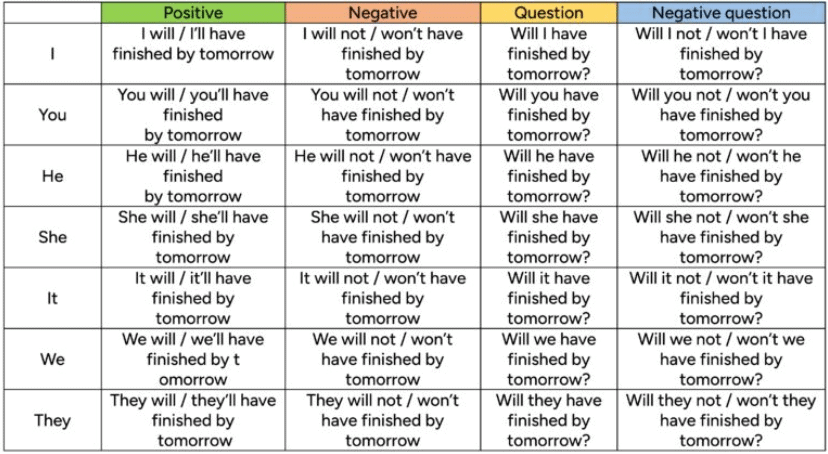
4. Future Perfect Continuous Tense
The Future Perfect Continuous Tense is used to describe an ongoing action that will be completed at some specific time in the future. It emphasizes both the duration and completion of the action.
Structure:
Subject + will have been + present participle (base form of verb + ing) + rest of the sentence
Examples:
- I will have been working on this project for two hours by the time you arrive.
- She will have been studying for three hours by noon.
- By the end of the year, we will have been living here for five years.
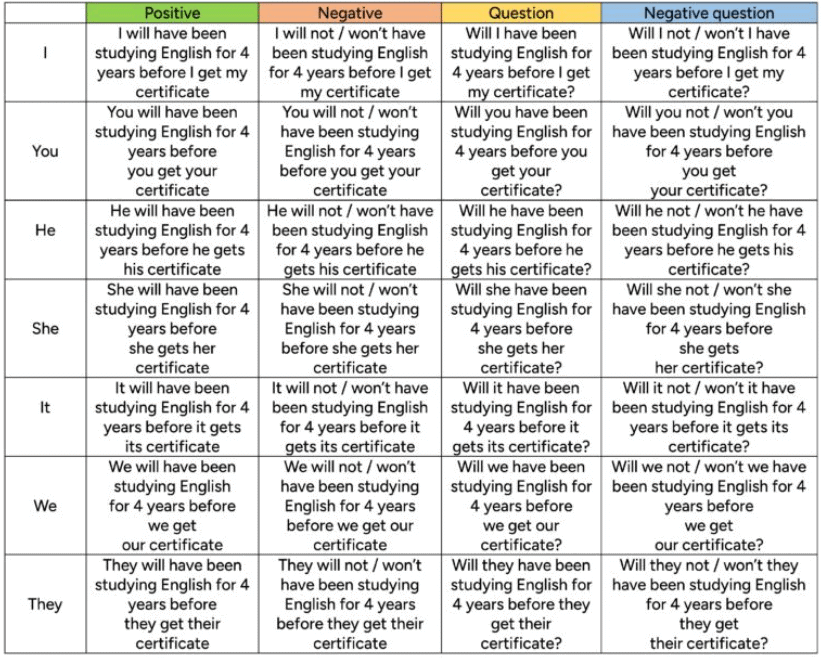
Solved Questions
Question 1:
Which sentence uses the Simple Future Tense?
A) She is working tomorrow.
B) He will finish the report by 5 PM.
C) They are attending a meeting tomorrow.
D) I have already eaten.
Answer:
B) He will finish the report by 5 PM.
Explanation:
The Simple Future Tense is used to express actions that will happen in the future. "He will finish the report by 5 PM" is a prediction or expectation about the future.
Question 2:
Which sentence uses the Future Continuous Tense?
A) They will have completed the task by tomorrow.
B) I will be traveling to Paris next week.
C) She will have been working by the time we arrive.
D) They will have lunch at 12 PM.
Answer:
B) I will be traveling to Paris next week.
Explanation:
The Future Continuous Tense describes actions that will be ongoing at a specific point in the future. "I will be traveling to Paris next week" indicates an action happening at a future time.
Question 3:
Which sentence uses the Future Perfect Tense?
A) They will be attending a conference next week.
B) By the time you get here, I will have left.
C) She will have been studying for two hours by noon.
D) He will call you tomorrow.
Answer:
B) By the time you get here, I will have left.
Explanation:
The Future Perfect Tense describes an action that will be completed before a certain point in the future. "I will have left" indicates that the action will be finished before you arrive.
Question 4:
Which sentence uses the Future Perfect Continuous Tense?
A) I will have been reading for an hour by the time you arrive.
B) She will finish her homework tomorrow.
C) They will have arrived by noon.
D) He will visit the museum next week.
Answer:
A) I will have been reading for an hour by the time you arrive.
Explanation:
The Future Perfect Continuous Tense emphasizes the duration of an ongoing action that will be completed in the future. "I will have been reading for an hour" highlights the duration of the action.
Question 5:
Which of the following sentences is in the Future Continuous Tense?
A) They will leave for the airport at 9 AM.
B) She will be speaking at the conference tomorrow.
C) I will have completed the report by noon.
D) We will visit the museum next week.
Answer:
B) She will be speaking at the conference tomorrow.
Explanation:
The Future Continuous Tense describes ongoing actions at a specific future time. "She will be speaking at the conference tomorrow" indicates an ongoing action in the future.
|
112 videos|451 docs|90 tests
|
FAQs on Future Tense - Verbal Ability & Reading Comprehension (VARC) - CAT
| 1. What are the different types of future tense in English? |  |
| 2. How do you form the Simple Future tense? |  |
| 3. What is the difference between Future Continuous and Future Perfect tense? |  |
| 4. Can you provide examples of sentences using each type of future tense? |  |
| 5. When should I use "will" vs. "going to" in future sentences? |  |
















